1996:
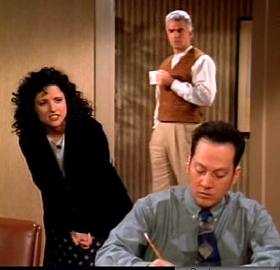
Uri Caine, Mahler: Symphony No. 5, Funeral March.
Kazmi with Rickies, Hugs.
The Divine Comedy, Songs of Love.
Quad City DJs, C'mon 'N' Ride It (The Train).
Koerner, Ray and Glover, Deliah's Gone.
Revelino, Step On High.
Mark Morrison, Return of the Mack.
Amy Rigby, Down Side of Love.
LeAnn Rimes, Blue.
OutKast, Wheelz of Steel.
Pavement, No More Kings.
Vic Chesnutt, New Town.
Geri Allen and Ornette Coleman, The Eyes Have It.
Mazzy Star, I've Been Let Down.
La Bouche, Fallin' in Love.
This Living Hand, Astronaut.
Primitive Radio Gods, Standing Outside a Broken Phone Booth With Money in My Hand.
The final verdict on the future of the American farm lies no longer with the farmer, much less with the abstract thinker or even the politician, but rather with the American people themselves--and they have now passed judgment.
They no longer care where or how they get their food, as long as it is firm, fresh and cheap. They have no interest in preventing the urbanization of their farmland as long as parks, Little League fields, and an occasional bike lane are left amid the concrete, stucco, and asphalt. They have no need of someone who they are not, who reminds them of their past and not their future.
Their romanticism for the farmer is just that, an artificial and quite transient appreciation of his rough-cut visage against the horizon, the stuff of a wine commercial, cigarette ad or impromptu rock concert.
You see, we in America have been running away from the isolation, uncertainty, boredom, toil and drudgery of the farm for a century and more now, and in our lifetime have finally escaped it entirely...We desire the security of the corporation and bureaucracy even as we hate what we become, and so we run from the farm only to dream that it might save us all yet.
Victor Davis Hanson, Fields Without Dreams.
Well, we're almost done. Is anyone nostalgic about the '90s? Because it's far too early for that.
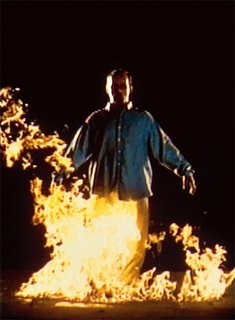
Viola, The Crossing.
Gustav Mahler seemed to predict in his symphonies, his songs on the death of children, the divers horrors of a century whose progress he would barely witness. A converted non-practicing Jew, yet still subjected to anti-Semitic slanders in the Austro-Hungarian press, Mahler died in 1911: his music was banned by the Nazis two decades later for being "degenerate"; his niece, the violinist Alma Rosé, died in Auschwitz. And as the century neared its close, a new generation of Jewish musicians found deep within Mahler's music cantor melodies, the sound of the shetl.
In the mid-'90s, Franz Winter was making a silent film about Mahler's life and asked the pianist Uri Caine to arrange some Mahler to accompany it. Caine spent a year immersing himself in Mahler, and then radically reworked his music: the third movement of the First "Titan" Symphony became a funeral procession delivered by fiddle and clarinet, which then erupts into a klezmer wedding dance; "The Drummer Boy," from The Youth's Magic Horn, pits drums against a cantor's wail.
And the funeral march that begins Mahler's Fifth Symphony is turned by Caine into a trumpeter's holiday, offering both reveille and taps. Like the rest of the Mahler works Caine rejiggered, it is done with a touch of parody and a sense of wistfulness, of defeat and rebirth.
Performed by some of New York's most renowned jazz musicians, including Don Byron (clarinet), Dave Douglas (t), Josh Roseman (tb), the frenetic drummer Joey Baron, and Dave Binney (sopranino sax). Even Arto Lindsay and DJ Olive turned up for a few tracks.
Recorded in Brooklyn, June 11-26, 1996; on Urlicht/Primal Light. Caine's website.
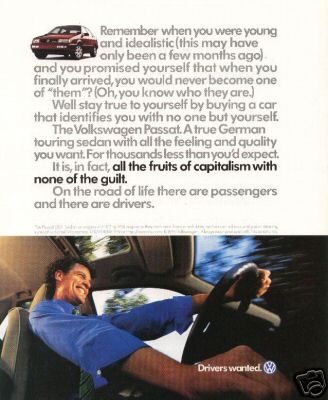
Kazmi with Rickies is a Japanese pop band led by the singer/guitarist Kazmi Kubo, whose magpie tastes led her to fuse a style from bits of everything from ye-ye to Josie and the Pussycats to the gnomic punk of the '80s UK band The Monochrome Set.
Kazmi, who was from Nara, Japan's ancient capital city, formed the Nelories with singer/accordionist Jun Kurihara, the band releasing a number of records in the early '90s.
The pop bonbon "Hugs," complete with Morse Code guitars and perfectly-timed handclaps, is off of Kazmi's first "solo" album, Kazmi with Rickies' Who. Rickies were Jai Okada (guitars, keyboards, percussion, flute), Mariko Toriyama (backing vox, keyboards, percussion, flute), and Asa-chang (drums, percussion, bass, samples).
Recorded in Tokyo, released in March 1996; on Who. (The CD is out of print, but this site appears to be a way to order it in Japan, if you can read Japanese, that is.) Kazmi's website here.

The Divine Comedy is the singer/songwriter Neil Hannon, born in Derry, Northern Ireland in 1970, and whoever his backing group is at the time. Along with his trans-Atlantic counterpart Stephin Merritt, Hannon is perhaps the last practitioner of the arch pop crafted by the likes of Jerome Kern and Noel Coward. Aware of his own preciousness (an early track "The Booklovers" features Hannon rapturously intoning "Sir Walter Scott...Charlotte Bronte", and his "Absent Friends" is a tribute to Oscar Wilde, Jean Seberg and Laika the space dog), Hannon never descends into self-parody--his fine tenor voice adds a measure of poignancy to his songs.
"Songs of Love" opens with the image of "pale, pubescent beasts" roaming the streets after school--the song offers the wry contrast between the misanthropes and recluses who make pop music and the vast, unbothered herd who consumes it. Carried at first only by guitar, the song opens up in the second verse with harpsichord and another vocal track echoing Hannon's lead.
Released in April 1996, on Casanova, which also can be purchased/downloaded on Hannon's site.
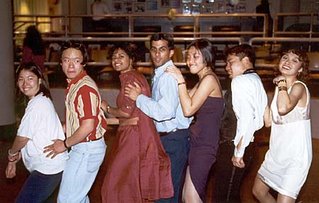
One of the things I miss most about New York is the way a new single would present itself through strangers before you ever heard it on the radio. Craig Mack's "Flava in Ya Ear," for example, was debuted by a happy fellow on the 6 train who, nodding his head and rapping his fingers on his Walkman headphones, chanted "kickin' new flava in ya ear...time for new flava...in...ya...ear" all the way down to 33rd St. And I first heard "C'mon 'N' Ride It" one night at Cinema Village, as the usher was humming it, shaking slightly from side to side and singing, as he grasped tickets and gently tore them in half: Come'n ride th' train--RIP--'n ride it. Come'n ride th' train--RIP--'n ride it.
The Quad City DJs were actually from Miami--they were the producer duo Nathaniel Orange and Johnny McGowan, who had produced hits for 95 South ("Whoot There It Is") earlier in the decade. Using a sample of Barry White's "Theme from Together Brothers," they crafted in "Ride It" one of the best examples of Miami bass in the '90s.
On Get On Up and Dance.

Khobar Towers: "Those youths will not ask you (William Perry) for explanations, they will tell you singing there is nothing between us need to be explained, there is only killing and neck smiting."
"Spider" John Koerner, Dave "Snaker" Ray and Tony "Little Sun" Glover were a folk trio who had recorded during the music's heyday. Koerner, who sang and often played 12-string guitar, met guitarist Ray and the harmonica player Glover in 1962, and the trio made a number of records for Elektra before drifting apart in the late '60s, although they reunited sporadically in the decades since.
By the '90s, resurrecting murder ballads and string-band songs was once again back in vogue, marked by Bob Dylan's two garage recordings of folk tunes, the complete oeuvre of the Palace Brothers and the CD reissue of the Harry Smith Anthology in 1997. "Deliah's Gone" is a variant of a tune called "Delia," which has been around for much of the 20th Century, recorded by everyone from Blind Blake to Johnny Cash. Its origins may lie in the 1900 murder of a Georgia woman named Delia Green, slain on Christmas Day by Moses "Cooney" Houston.
Recorded May 20, 1996, at Bryant Lake Bowl, Minneapolis; on Rose and the Briar.

The Dublin-based band Revelino, composed of Brendan Tallon and his brother Ciaran, Alan Montgomery, Bren Berry and Shane Rafferty, were one of the many lost pop contenders of the '90s: bands that released jangly, melody-riddled albums that perhaps in some other era or clime would have been huge hits, but which instead quickly fell into utter obscurity. I only learned of Revelino when it was revealed the late John Peel had included "Step on High" in his box of favorite singles.
Revelino released three albums, the last in 2001, and then broke up, with Tallon and Rafferty forming a bar band called the Beat Club (this info is from Mp3hugger, the only blog I've seen write anything about this group).
So here's to lost gems: Enjoy "Step on High," with its BA-BA-ba-ba-BA harmonies, its rocketing drums and its roaring guitars. It can be found via import CD single here.

Mark Morrison, born in 1972 in Hannover, Germany, was raised in Leicester, UK, and in 1996 became the first black solo artist to have a #1 hit in the UK in the '90s. "Return of the Mack," which also hit big in the US in the following year, is a smooth bit of modern R&B, Morrison's slightly nasal vocal compensated by the thick, novelty-stuffed production of Phil Chill, who had previously worked with Neneh Cherry.
Released in April 1996; on Return of the Mack.
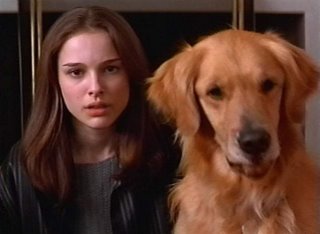
Since I've plundered bits of various innocent people's journals, letters, articles and essays for material during the course of this series, I suppose it's only fair that I offer my own contributions. So here are some excerpts from the journal of a callow 24-year-old NYC resident in 1996.
First, from February '96, in reference to a cross-country flight made to San Diego:
My flight lasted five hours, most of which I spent listening to an old woman, Ruth, in the seat next to mine. She had musty breath and was so short she couldn't watch the in-flight movie. She was going to an elder hostel for two weeks and said she liked traveling. She said she was getting up in years, and I stammered to say she looked all right. "Oh, I've still got some jism, if that's what you mean." At least that's what I think she said.
She talked about the '30s and'40s, of a brother who went to school on the GI Bill. She saw a Lufthansa jet on the runway and said she could never give her money to the Germans.
From July '96, one of the most violent things I ever witnessed in the city:
On a long lunch break today, I walked up to the library branch at 40th and 5th to return Theocritus' Idylls. [Oh, what an ambitious reader I was in those days.] As I waited in line a group of security guards were escorting a man out to the exit. He was surrounded like a dignitary, was tall and clean-looking, a slim black man with a circular bandage under his right eye. He wore a cream-colored suit and kept saying in a clipped West Indian (?) accent, "I pay taxes, I pay taxes." One guard told him to pay them somewhere else. As they were going outside, the man swore at each guard and then turned and spit in the face of one, a livid-looking guy in shirt sleeves.
Outside, through the Fifth Ave window, we watched as the guard charged the offender and they traded blows. The other guards ran up and began clubbing the man with truncheons (who know library cops had truncheons?) and knocked him to the ground. It was utterly silent in the library, as we watched the violence outside, a pantomime of blows and beatings. A crowd of tourists stopped to watch.

More webpage horrors from the pupal stage of the Internet here. Use Netscape to get that real '96 flavor.
Amy Rigby, born in Pittsburgh, was one of the many kids who moved to New York in the late '70s, stumbled upon CBGB's and decided to start a band. Hers was the all-female trio The Shams. She married dB's drummer Will Rigby, had a child and subsequently a divorce, all of which went into her first solo record, the wonderful Diary of a Mod Housewife.
"What is a mod housewife?" Rigby wrote in the liner notes. "You've probably seen her at the supermarket with her kid in a grocery cart, headphones blasting Elastica...[or] pushing her toddler in a swing, with a fading ink stamp on her hand from some club the night before." Diary is a sweeter, goofier but no less impassioned woman's response to Blood on the Tracks, in its incisive look at how relationships fade, how love blanches into betrayal, how age erodes some illusions and erects new ones. As Rigby sings on "Down Side of Love": "That tingling feeling, when you're first holding hands/Gives way to dealing with a list of demands."
"Down Side of Love," whose sweet melody and toy piano accompaniment assuage the hard truths of the lyric, is just one of the gems on this record, produced by the Cars' Elliot Easton.
Recorded in North Hollywood, released in August 1996. Diary, along with Rigby's other fine records, can be purchased on her website; Rigby's tour dates.
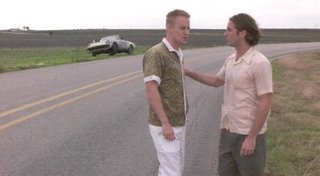
Anderson's Bottle Rocket.
In the '90s, country music, for the first time, became something close to a national popular music in the U.S. When record stores began using Soundscan in 1991, rather than the earlier, haphazard method of tracking album sales, the greatest beneficiaries were rap and country musicians, who were shown to be selling far more records than had been imagined.
Nineties country was symbolized by the arena-filling success of Garth Brooks, who seemed to owe more to REO Speedwagon and the Eagles, even KISS, than he did to Hank Williams; his host of hat-wearing imitators; and the likes of Shania Twain, who made '70s LA pop-rock albums updated with loud digital production and a bit of twang and fiddle thrown in for color. Not that Twain's records weren't, at times, fine pop music, but their connection to country tradition was a bit tenuous.
Not so with LeAnn Rimes. Rimes, born in Mississippi in 1982, was a child country music prodigy in the mold of Brenda Lee and Tanya Tucker. A mere thirteen years old when she first recorded, Rimes, by decade's end, would have colossal pop crossover hits like "How Do I Live," and she would even turn up in allegedly mainstream films like Coyote Ugly.
"Blue," her first single, is a stone-cold gorgeous piece of retro country, a track that seems like the second coming of Patsy Cline (indeed, the song's writer, Bill Mack, claimed he had written it for Cline just before her death). Rimes' vocal has a Cline-like sense of yearning, and she seems like she's ready to yodel at any moment. The whole track seems to pretend, as David Cantwell wrote, that the past isn't really gone for good, as false a notion as that ultimately may be. Still, there's never been a lovelier resurrection.
Released on May 25, 1996; on Greatest Hits.

Hamilton, Mantle.
OutKast is the team of East Point, Georgia, high school friends Andre Benjaman and Antwon Patton, both born in 1975. The name "OutKast" struck a chord with them because in the early '90s, hip hop appeared divided between its waning East Coast-based founders and the rising gangster-rappers of the West Coast. OutKast, based in the South, had no allegiances to either style, which seemed to liberate the pair in terms of their style and sound.
Benjamin would eventually metamorphize into an eccentric pop dandy--his most recent incarnation as a cartoon character seems fitting; Patton would keep closer to hip hop's roots, and his tracks were often the more solid and compelling on OutKast's recent albums, in which the pair were recording as a group in name only.
Years before, however, Patton and Benjamin could play off each other briliantly. "Wheelz of Steel," off their second LP ATLiens, is a marvel, both a throwback to old-school DJ anthems while OutKast and their producers Organized Noise offer a smooth, funk-infected peek at the future. On ATLiens.
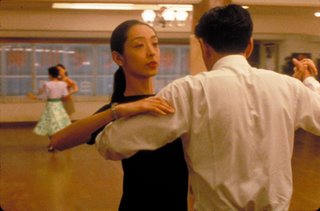
Suo's Shall We Dansu?
Pavement was possibly the greatest American rock band of the '90s, which is an odd claim for a band so seemingly intent on frustrating its listeners. A rock group that seemed crafted for people who were sick of rock music, Pavement offered astringent noise pieces alongside shiny pop numbers, while lead singer/instigator Stephen Malkmus wrote lyrics that occasionally made him appear to be a worthy successor to John Ashbery, and other times as if he had played a game of Mad Libs before entering the vocal booth.
Pavement's records, at least up until 1995's Wowee Zowee, were palimpsests--their cover graphics were discarded '70s LP covers scrawled over with new song titles and production credits, and the tracks often sounded as if a new recording had been overdubbed on a old. creaky master tape; sometimes, they simply plundered wholesale from the past and didn't bother to disguise it (i.e. the melody of Buddy Holly's "Everyday" conscripted for the verses of "Silence Kid").
"No More Kings" is Pavement's take on a '70s Schoolhouse Rock song. While delivered in the typical Pavement style, with goofy vocal asides, squalling guitars and restless rhythms, Malkmus keeps a straight face throughout the performance. When he reaches the line "no more king," he even bestows some grace and authority upon the words. "No more king--we're gonna run our things our own way, gonna run it into the ground."
Originally released April 1996 on Schoolhouse Rock! Rocks; also on the newly-revamped and essential Wowee Zowee: Sordid Sentinels Edition.
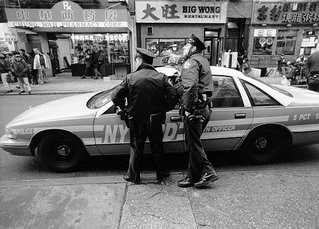
Vic Chesnutt, born in 1965 in Jacksonville, Florida, is sometimes referred to condescendingly as a "neo-primitive" folk musician. A quadriplegic after a car accident in the early '80s, Chesnutt moved to Athens, Georgia, where he was befriended by the likes of R.E.M.
"New Town," from his only major-label record About to Choke, is a good example of Chesnutt's style, with a lyric offering insights both concise and abstract and delivered in Chesnutt's croaky, down-home voice.
Released in November 1996; About to Choke is out of print but can be purchased pretty cheaply. Chesnutt's official web site.
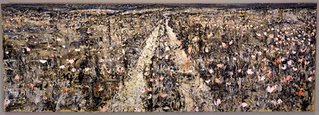
Kiefer, Bohemia Lives By the Sea.
The jazz pianist Geri Allen, born in Pontiac, Michigan in 1957, is one of the most gifted players of her generation, as comfortable with the most weathered of standards as she is with the avant-garde. Of the latter, Allen took on a challenging task, working as Ornette Coleman's first acoustic piano player in decades. Coleman, who had shunned piano accompaniment from his earliest days and seemed at times aggrieved against its very sound, found in Allen an inspiring partner.
"The Eyes Have It," a duet with Coleman, is a conversation that begins with Coleman furiously riffing while Allen jumps around the keyboard, and then cools down, with the players quietly appraising each other.
Recorded in New York on March 1, 1996; on the out-of-print Eyes In the Back of Your Head. Allen is currently an associate professor of jazz piano at the University of Michigan.

Milhazes, Succulent Eggplants.
Another thing I used to do in journals (back in the days when I kept journals) was occasionally try to imitate John Dos Passos' "newsreels," which he included throughout his "U.S.A." trilogy.
So here is August 7, 1996. All headlines, photo captions, bits of articles are from the NY Times, NY Post, Village Voice and NY Daily News:
Ross Perot Will Not Like This Book
Detective Shot 3 Times By Suspect is Saved By Bullet Proof Vest
BOB'S CALL FOR CUT MAY PAY OFF: POLL
The flame has been extinguished but the Carl Lewis saga burns on
Arli$$ Is the Picasso of His Day
WHO's THE BIGGEST 'FLIRT'?
The Personal Responsibility, Work, Opportunity and Medicaid Restructuring Act of 1996, just passed by Congress, will cost the state an estimated $1.3 billion a year in aid
LIFE ON MARS amazing discovery of fossils on meteorite
Jennifer Aniston and beau Tate Donovan seen renting a porno tape at Tower Video on West 4th St.
Senator Moynihan--only marginal help
Shrinks called Central Park rapist a Powder Keg
"We've been going to hell with Davis. He can go the rest of the way alone."
Arafat says plan for settlements violates accords URGES ACTIVE RESISTANCE
FOR CRASH VICTIMS' FAMILIES A PAINFUL RETURN TO ROUTINE
Only six mourning families remain at the hotel
Russian Communists Meet to Plan Their Role as Opposition Party
Heimel Gets Hitched!
Punk nostalgia sucks, The Pistols reunion is something else
IF HAROLD LLOYD LOVED TO CLIMB, JACKIE CHAN LOVES TO JUMP
Top Aide: Hillary Pressured Me
"How screwed up Hollywood is right now and how the old system of corruption there isn't working any more"
MR. T DOING WELL AFTER TREATMENT

Mazzy Star consisted of the guitarist David Roback, a veteran of several neo-psychedelic bands in the 1980s, and the singer Hope Sandoval, who was in high school for much of that time. Roback founded The Rain Parade with his brother Steve, then left in the mid-'80s to form Opal with ex-Dream Syndicate bassist Kendra Smith. Smith was friends with Sandoval, who at the time was in a folk duo, and when Smith left Opal, Sandoval was tapped as her replacement.
Sandoval and Roback, who eventually reconstituted into Mazzy Star in 1989, released a trio of records during the 1990s, offering a sort of somnolent feedback-laced folk. It's music that seems designed to be a soundtrack for late night dorm room soliloquies, but some tracks, like the spare "I've Been Let Down," are lovely artifacts.
Released October 29, 1996; on Among My Swan.

After soul music died, many of its great singers migrated into dance music in the '80s and '90s, providing color, power and soul to everything from house to Hi-NRG. Singers like Martha Wash offered some of the most joyous pop vocals of the period, offering a blessed relief from the extremes of the melismatic disciples of Mariah Carey and the studied monotony of the likes of Liz Phair.
Melanie Thornton, one of the finest pop singers of the '90s, was born in South Carolina but wound up in Germany, where she met D. Lane McCray Jr., born in Alaska and stationed in Germany with the Air Force. The two formed La Bouche and in 1994 had a massive European hit with their debut single, "Sweet Dreams," which would become an equal smash in the U.S. two years later. "Fallin' in Love," a Eurodance workout made sublime by Thornton's singing, would be another U.S. hit in '96.
Thornton quit La Bouche at the end of the decade, and seemed poised for a solo career, but tragically was killed in a plane crash near Zurich in November 2001.
On Sweet Dreams.
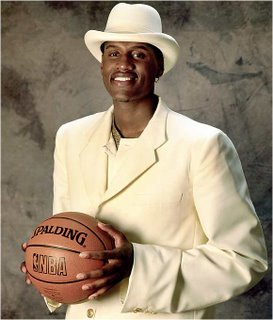
This Living Hand consisted of the childhood friends Neilson Hubbard and Clay Jones, violinist Helen Lamb and drummer Garrison Starr. Based in Mississippi, the band was first known as Spoon, changing its name to This Living Hand (from Keats) around the time they added Starr. The band offered a Southern version of the slow, drifting morphine-tinged sound of bands like Galaxie 500 and Codeine.
Their second record was to be called The TV Sounds Worried, but after promo copies were sent out in '96, the CD's release suddently was cancelled. TV Sounds Worried soon became a lost cult classic, though perhaps a slightly overrated one. Still, there are some lovely, meandering tracks on it, such as the gorgeous "Astronaut." Starr and Hubbard went on to make a number of solo records.
TV Sounds Worried was first featured on the very much missed The Mystical Beast, which was one of this blog's first supporters as well as one of my favorite sites. Thanks, Dana--hope all's well.

Early spring '96, North China Plain, via US satellites.
Back when Stylus offered an alternative selection of greatest '90s hits, they singled out the Primitive Radio Gods' elephantine-titled one-hit wonder from '96: it "defines that brief moment in time after the death of grunge and before the rise of nu-metal where nobody had any idea what to do and so people did everything."
Built around a sample of B.B. King's "How Blue Can You Get," the track is somber and a bit ridiculous, with a lyric sometimes evocative, often asinine ("bathe yourself in zebra flesh"? really?). It was a song that seemed, from the first time I heard it on Vin Scelsa's old "Idiot's Delight" radio show, like some long-discarded memory, suddenly retrieved from the hole where most thoughts go.
So contrary to my earlier joke about it being it too soon to have nostalgia for the '90s, there's something utterly sad and, yes, nostalgic, about this song for me. But mind you, the track already seemed nostalgic at the time, as if, through some time-slip, it had arrived before the memories it was meant to evoke.
I've been downhearted baby, ever since the day we met....
Released in June 1996; on Rocket.
No comments:
Post a Comment